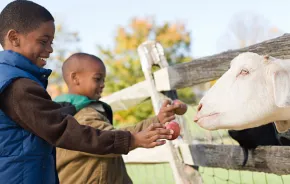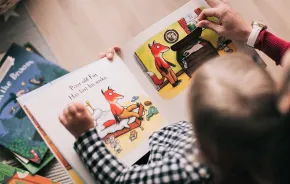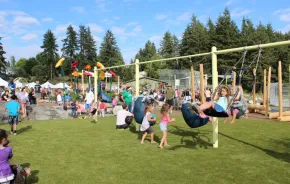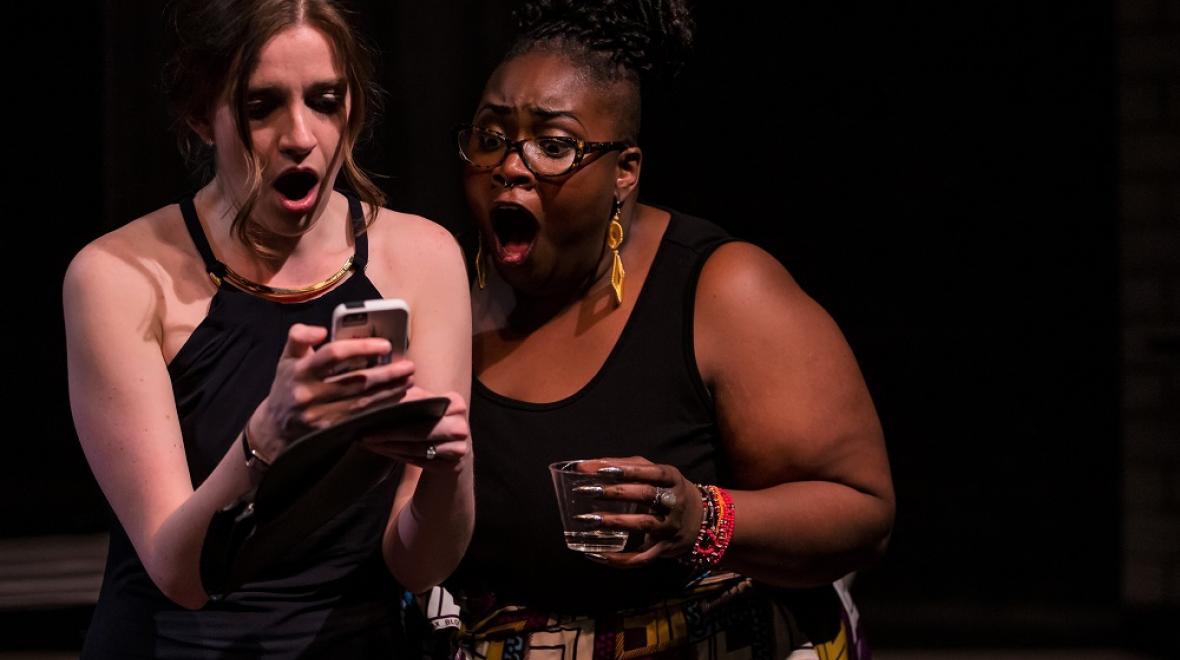
Photo:
Brenda Joyner and Shermona Mitchell in Seattle Public Theater's 'The Call.' Credit: John Ulman
Bottom line
“The Call” is “Who’s Afraid of Virginia Woolf?” for the 21st century. Both Edward Albee’s classic and Tanya Barfield’s new play that premiered at Seattle Public Theater last weekend are tightly written, using nearly every line of dialogue to both propel the plot and deepen characterization.
Both create strong, relatable characters without granting any of them a moral free pass. In both plays, two educated, affluent couples come together over dinner, and through a series of conversations — ranging from entertaining to heartbreaking — they reveal profound truths about themselves. They also raise deeply challenging moral questions about their life choices.
Both plays hinge on one couple’s response to infertility.
Although it can be painful viewing for anyone who has experienced infertility or adoption, "The Call" is a thoughtful, thought-provoking play, recommended for anyone interested in the complexities of what it takes to build a family.
Stage notes
In Barfield’s “The Call” — unlike in “Virginia Woolf” — the infertile couple in the play pursues transracial, international adoption. Their newlywed house guests are their best friends — a globetrotting, black, lesbian couple who supports their choice, though with some significant reservations.
Directed by Annie Lareau, “The Call” is a perfect example of Seattle Public Theater’s mission to produce compelling, socially relevant theater that sparks conversation and ignites empathy. With a cast of only five characters (each performed so naturalistically you almost forget they are acting), three are African-American and two are lesbian.
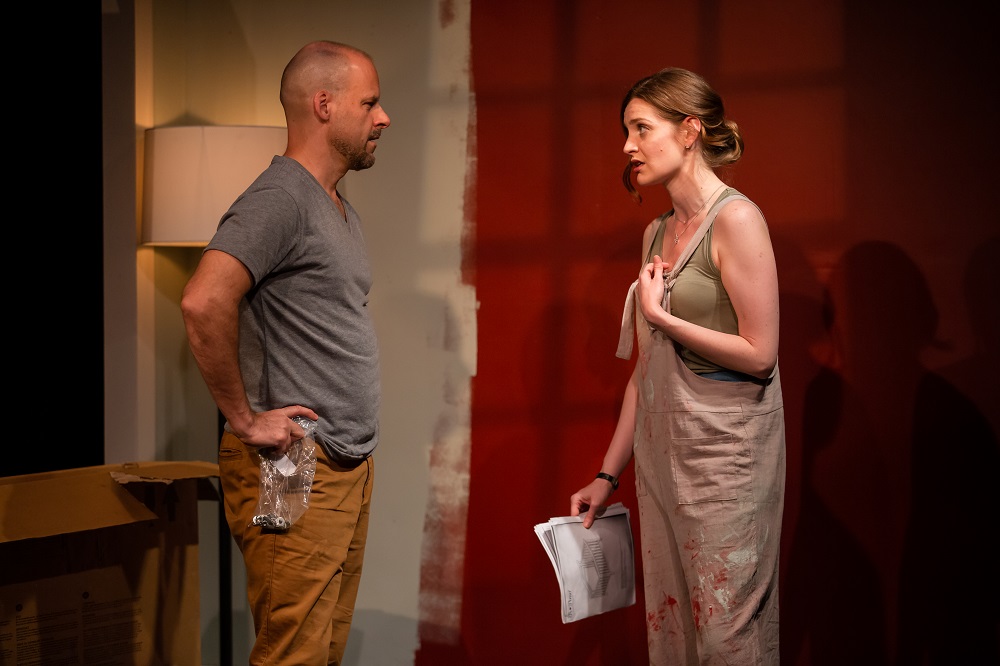
While these identities are critical to the story, they are not the story itself. Rather, they are necessary for the different perspectives they bring to the situation. Through their conversations, the straight, white couple of Annie and Peter is forced to look beyond their immediate impulses to recognize issues that privilege would otherwise blind them to. That these conversations are as fragmented and nonlinear as conversation is in real life, rather than the too-perfect diction of Albee’s mid-century academics, is a testament to Barfield’s skill as a writer.
Adoption and infertility
For many viewers, the title of this play, “The Call,” may seem a bit mysterious or may evoke the idea of parenthood as a calling. For adoptive parents, the title is immediately obvious. It refers to the phone call we wait for — sometimes for years — telling us that we have been matched with a child, that we can soon begin life as a family.
Barfield depicts Annie and Peter’s struggles with infertility and adoption so accurately that this play comes with a trigger warning. I nearly cheered out loud when Annie said, “God isn’t making us a family — a hell of a lot of paperwork is!”
The central conflict is that in their desperation to simply become parents, Annie and Peter want to ignore the complexity of international and transracial adoption. There are questions about what makes a family that every adoptive parent must answer. Can you be a mother when you’re not the only mother? Can you live without witnessing any number of your child's “firsts”? Can you deal with the impacts from a medical and family history that is not your own?
“The Call” is a sometimes painful reminder of the questions about international adoption that adoptive parents can and often do avoid. Why are adoptive parents so often white when the children available for adoption are not? How can you teach your child what it takes to be a person of color in America when you are insulated from racism by your own white privilege? Are you willing to embrace the race and culture of your child, along with the child herself? Ignoring these questions shifts an unavoidable burden to the adopted child.
“The Call” does not attempt to answer these questions, although it does perhaps provide us clues. By giving Annie and Peter close friends who share their child’s race, who love and support the couple but refuse to let them off easy, it forces them into horribly uncomfortable interactions with their neighbor who shares their child’s birth culture.
The biggest question in the play is whether or not Annie and Peter will adopt. In real life, that decision is just the first in a lifetime of difficult choices. In life and on the stage, “The Call” implies that parents only start to find answers when they stop asking themselves what they want and start asking what’s best for their child.
Parents should know
Although it does not contain any violent or sexual material, “The Call” is not really a show for kids. This show is recommended for adults. Taking place almost entirely through dinner conversations, there is no action to speak of, and even the powerful themes are often addressed through subtext that would go over most kids’ heads.
Those themes — of fertility, adoption and unexamined racism — especially as explored from the perspective of potential parents, are unlikely to interest many kids. Adopted kids might be disturbed by the frank expression of ideas and doubts presented in the story. For example, it is valuable for adults to confront the idea that adoption is “settling for less” or that adoptees are somehow damaged. Children, of course, should be protected from these erroneous notions.
If you go...Where: “The Call” is on stage at Seattle Public Theater, also known as Green Lake's Bathhouse Theater, located on the west side of Green Lake at 7312 West Green Lake Dr. N. in Seattle. When: The show plays Thursday–Sunday, through June 9, 2019. Tickets: Regular ticket price is $34; use code PARENTMAP for $25 tickets Parking: Free parking is available in the lot on West Green Lake Dr. N. |








